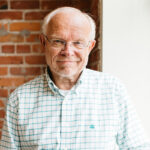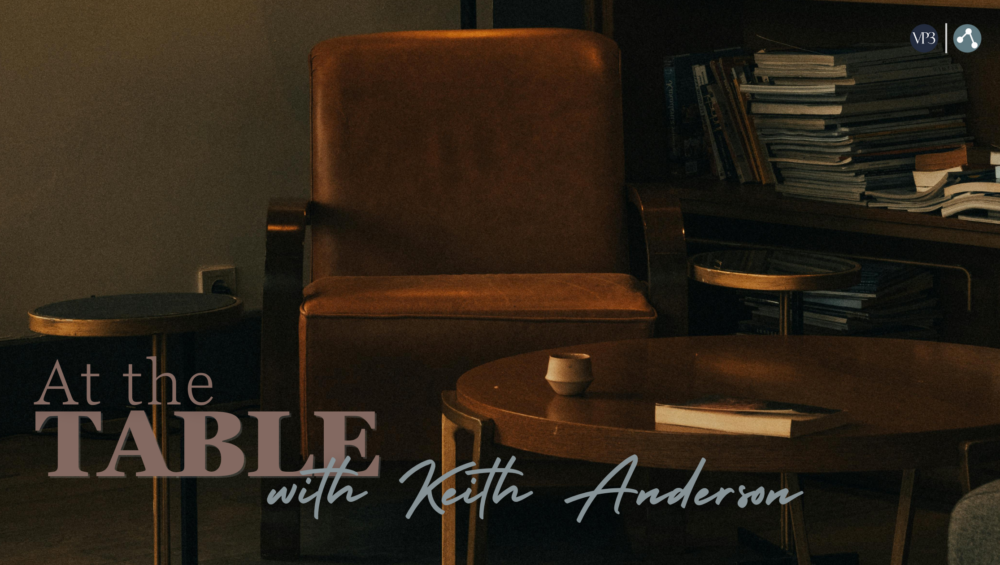Lent: Prophetic and Poetic Paths—Part 1
Two of our final two portraits for Lent will be presented for the diversity they bring in their understanding and practice of Lent. Walter Brueggeman is first and foremost a professor of Old Testament studies. Kathleen Norris is a poet and spiritual writer, both of whom we need to listen to. I have read nearly all their published works, so, I’ll call them by name: Walter teaches us that Lent is misunderstood as a season for giving up. He calls us to a practice of taking on. I first used his stellar book, The Prophetic Imagination, as the text for undergrads at a college in South Dakota.
A professor’s thoughts on Lent
Walter teaches us that Lent is not just about giving up things (like fasting or self-denial) but also about taking on—practices that align with God’s justice and renewal. He emphasizes that Lent is a time for transformation—moving beyond personal sacrifice to actively engaging in acts of mercy, justice, and prophetic imagination. He turns our ears to Jeremiah, the prophet, who spoke fiercely against being neutral about God and God’s ways.
Jeremiah gives witness to the real presence of God who has capacity to bring newness to otherwise broken social realities marked by violence, division, animosity, ethnic hatred, and hostile political partisanship.
Brueggemann encourages Christians to embrace Lent as a season of both critique and hope: critiquing the ways we participate in systems of injustice and taking on new commitments that embody God’s vision for a more just and compassionate world. This approach makes Lent not just about personal piety but also about social renewal.
A poet’s thoughts on Lent
I first used Kathleen’s book, The Cloister Walk, with undergrads for its emphasis on returning to silence, simplicity, and a deep awareness of God’s presence. Thus, it serves as a contrasting theme to Brueggeman. She sees Lent as a season for withdrawal from our busyness to create space for listening.
Prophets and Poets
Activists and ascetics, prophets and poets—we are malnourished in our contemporary consciousness and culture for people like them. Both prophets and poets have been imprisoned or killed by authoritarian political leaders, threatened by the truth they bring. Be on the lookout any time for the censorship of activist writers and poets who create the same fear that Jesus did among those whose power was created by the authoritarian power of the Roman Empire. Historically, we have seen regimes rule by censoring information and news, burning textbooks, and stifling the messages of both prophets and poets. These writers honor a vivid imagination for what might be; by contrast, power mongers rely on suppression of the very diversity of thought they bring and are quickly declared heretics or enemies of the state.
One of the most well-known statements about this is Matthew 23:37, where Jesus laments over Jerusalem:
“Jerusalem, Jerusalem, you who kill the prophets and stone those sent to you, how often I have longed to gather your children together, as a hen gathers her chicks under her wings, and you were not willing.” (Matthew 23:37, NIV)
Can Lent be a season for seemingly opposite practices?
Two more thoughtful scholars and artists are hard to find. How, then, can Lent be a season for seemingly opposite practices? Look to Jesus, whose critique of Roman power was a backdrop for withdrawal, reflection, and prayer, as well as his declaration of an activist call to practice compassionate and concrete justice for the marginalized. No more sitting on the sidelines or keeping silent in the face of concrete acts of prejudice, injustice, and policies that oppress the most vulnerable in our culture.
As we learned two weeks ago from Eugene Peterson, the call of Jesus is to “Change your life. God’s kingdom is here.”[1] An epic change has come to this earth, to our ordinary, today life: we call it the Kingdom of God. It is here and now and accessible to all.
“I am learning from Jesus how to lead my life, my whole life, my real life.[2] Both Walter and Kathleen would agree that spiritual formation happens in ordinary moments—at work, at home, in relationships, and in daily decisions. Dallas Willard was very clear: He taught that discipleship means learning to live as Jesus would live if He were in your place, transforming not just your beliefs but your character and actions.[3]
Next Sunday in the blog, we’ll explore the Lenten practices Walter and Kathleen teach.
Practice: This might be a great time to start keeping a journal—just a notebook with thoughts, prayers, quotes, and questions. How might your life re-focus if you think about it in light of the kingdom of God? Are there distractions from things you might “give up?” What might you “take on” in concrete practices this coming week?
__________________________________
[1] Matthew 4:17
[2] Dallas Willard, The Divine Conspiracy, p. 283.
[3] Ibid., p. 276

Keith Anderson, D.Min., is a Faculty Associate for Spirituality and Vocation at VantagePoint3 and President Emeritus of Seattle School of Theology and Psychology and is the author of several books, including Reading Your Life’s Story (IVP, 2016), A Spirituality of Listening (IVP, 2016), and Spiritual Mentoring (IVP, 1999). Keith’s newest book, On Holy Ground: Your Story of Identity, Belonging and Sacred Purpose, will soon be released from Wipf & Stock Publishers. In his writing, teaching, and mentoring, Keith seeks to set a table for people looking to enter the “amazing inner sanctuary of the soul” in the most ordinary and extraordinary moments of life.

